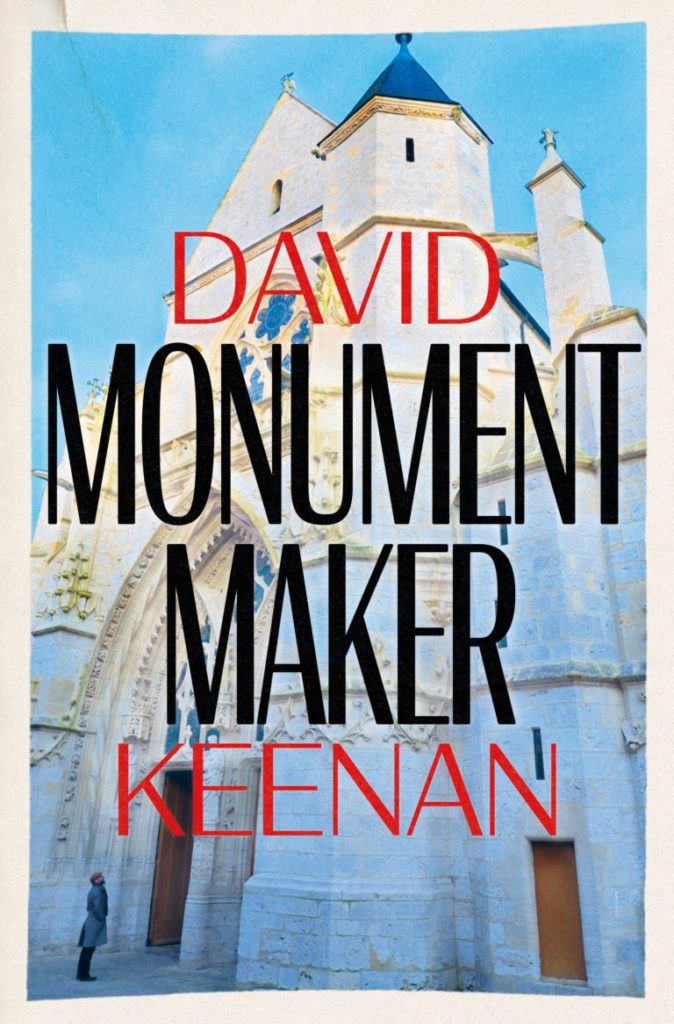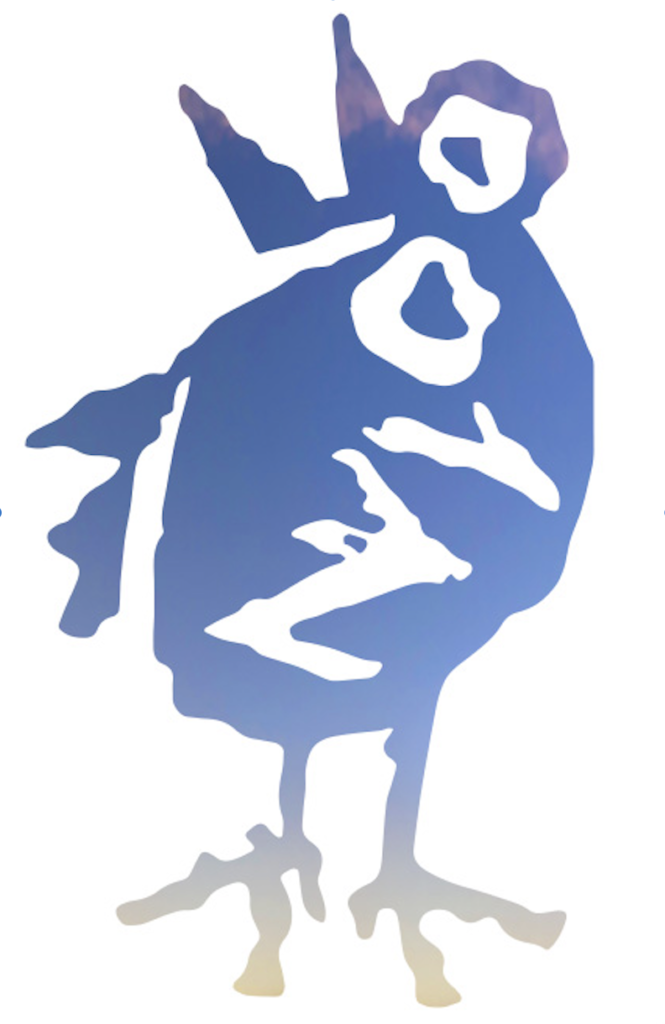I turned to my boy, and without thinking, without an idea in mind, I began. Let me tell you the story of a man who tries to build himself a time machine, I said to him.
He decides that he will take note of a certain period in time and space, I began, a certain phase of reality, and attempt to document and measure every last aspect of it, from the soft pink clouds above the tops of the trees through specifics of wildlife and fauna and temperature – all this in relation to a flat on the seventeenth floor of a tower block in the north of Glasgow, where our would-be explorer has lived in almost complete isolation for the past six months, streamlining his life to the bare necessities in order to keep potential variables to a minimum – the exact placement of everything in the room, the precise angle of the sunlight, the food that he ate that evening, the people he interacted with, all scripted, set in stone already so as to be more easily replicable, obviously he had a team of assistants and was a man of independent means, even the thoughts he thought, which he had pre-decided and mentally trained himself not to deviate from via years of extreme yogic training that included a night spent alone in the catacombs beneath Edinburgh’s Old Town which were reputed to be haunted, his reasoning being that if every detail can be recovered, every single variable that came together in a single moment in time and space, and if we can document that to the point that we can recreate it, given a team of volunteers from the university and a playboy budget, though not quite a full playboy budget as during the preparation and despite his extreme mental training the explorer had caught alcoholism – as if you can catch alcoholism like you catch measles – and so his daily alcohol regime had to be factored into the equation, which actually wasn’t at all problematic and in fact its routine aspect was gold dust, really, to the team of researchers and volunteers who worked on the project, if he drinks himself insane every night, someone said, all the easier to replicate it, but what about his thoughts, someone else said, won’t they wander under the influence of the drug, won’t they fluctuate and change, but if we can do that, if we can make it work, then surely we will have conquered time itself, or at least set a flag inside it that we can artificially orientate ourselves to again and again, someone else said, and someone else said, well, why this moment as opposed to any other moment, and of course they were forced to admit that money had the upper hand and that money facilitated time travel even better than mind control, that’s the conclusion some of them came to as they watched this mad monk drink himself to death in precisely the same fashion every night, with every detail rehearsed and meticulously watched over, like you’ve stained your shirt, monk explorer, you need to change it, or your right leg was crossed over your left one, brave friend, to the point that they decided that drinking himself unconscious was in fact the only foolproof way of cheating time, but what about nightmares, someone else said, what about obsessive thoughts, incoherent shapes, sounds that you can taste in your mouth, strange premonitions, a feeling of sinking, of rising up, what about paranoia or half-remembered stories from books passing for memory? Consciousness has a baseline, they say, but not exactly in those words, they say something like, there’s always the reptile mind, by which they mean the idea that the serpent is the only creature that truly travels in time, through the particular construction of its own mind, and that through the extreme and sudden application of alcohol it was in fact possible for a man to access that mindset, to cast himself down into the slime of his preconscious, which is the phlegm and venom and saliva of his maker, the seed of his worm, and so to defeat time by mimicking its fluctuations, a secret combination of poetry and objectivity was how the monk explorer described it, which could just as well describe the movement of the planets and the immensity of space itself, and so the experiment came to be more about an experience of eternity over travelling through time, and of course someone mentioned the positions of the stars, the transit of the planets, they can never be replicated, what about the movement of birds, earthworms eating soil and excreting their young, someone said, but the monk explorer shot him down, they are all cycles, he said, they are all looping, endlessly, saying that we could replicate anything on a smaller scale, even the secret stars behind the stars, the moon behind the moon and the sun that held the sun itself in its power, that’s ridiculous, someone said, if we had the powers of infinite suns here on earth then we would be as gods – some of the prose was awkward, like a biblical comic book – and it was here that the monk turned silent and asked for a bottle of premium vodka and a diet soda, and as the experiment began at first everything went according to expectations and they were transported via sound effects and stage props and complex logarithms and alcohol and mind control to a nondescript day, an event actually outside of the day itself, but still a part of it, although, as someone remarked, deadly dull, all the same, and they watched as this secret warrior monk crossed the threshold, passed through the iron vault of heaven itself, eventually dropping the glass bottle of vodka to the floor, a carpeted floor in order to prevent it from breaking, unpredictable shards of glass would have been a headache all round, and by this point the way he dropped the bottle to the ground, how he rolled it down his forearm, expertly, it had come to seem to the experimenters like a classical painting, like a romantic death, and he slumped to the bed as if in slow motion but still in perfect formation, there were gasps from amongst the onlookers, this is ballet, someone said, this is classical dance, this is art, someone said, a perfectly nuanced revisitation, they pronounced it, and they too felt themselves travel back in time, even though they had none of the mind training of the warrior monk, who by this point was their hero, what must it be like in there, they said, to re-enter a moment for a second time, someone gasped, and when they turned back around, the monitoring equipment confirmed it, it was right there on videotape, on hissy audio tape, on smudged amateur snaps from a disposable camera, in a transcription from a secretary that reads more like hieroglyphics than shorthand but that makes clear that what took place was undeniably real, that the warrior monk disappeared from the bed, that the bed disappeared from beneath the warrior monk, and that all that was left, hovering in a void – a depth, someone said, which better communicates the sense of cosmic endlessness and dread it conveyed, the contemporary accounts are more like whirlpools, madmen’s faces, dilated eyeballs – was a series of tall black towers set around a stone encampment in the shape of a hexagon, a mighty fortress, a prison camp, someone suggested, Colditz, someone else said, the Ark, the grail castle, someone else said, a classical scholar, perhaps, or a practising magician, but it was impossible to see what was inside, the walls seemed to climb before your eyes and subsequent analysis of the film revealed nothing, it was literally impenetrable, which is what made the experimenters agree that the vision of the abyss, as they dubbed it, a borrowed phrase but pertinent in the extreme, was the only permissible evidence of time travel, and the theory came about that the abyss was in fact a holding station, a full stop, a first stone holding time in check while the pilot travelled through the tunnels of Set, the tunnels of the RAF, the tunnels of the SS, the tunnels of The Kommandant, the tunnels of The SIRK, and afterwards, on his return, he seemed embarrassed, like a drunken teenager with a next-day hangover, materialised back on his bed, they asked him what it was like, this travelling in time, this storming of heaven, and it was like he wanted to change the subject, like it was something he would rather avoid, like sex talk with your parents, he brushed away questions about vertigo, about visions and demons but not about penis size, someone thought it might shrivel, someone else thought it might grow, and oddly enough he laughed at that one and answered it directly, it’s bigger, boys, he said, in fact it’s a monster, indeed his talk became increasingly sexualised, like smut was less embarrassing than scientific fact or mystical experience, and every time he would steer them away from the facts by introducing an unsophisticated sexual metaphor, doing the dirty, he would say, gardening up hill, tossing the chicken, strangling the cat, swimming the channel, riding a three-speed, which caused gasps all around, living the vida loca, breaking the hymen, busting the cherry, the beast with two backs, he said, and he winked at that one, the love that dare not speak its name . . . That night he used them all and invented a fair few besides, of which my favourite is still wolfing it, for obvious reasons.
He was the anti-Houdini, that’s how one of his followers described it, and by now they were all followers, disciples, witnesses to his turning back the power of the tide, and the decision was made to go public, to report the startling results of the experiment, and despite the recorded evidence, the floating towers, the stone of in the beginning, the comparisons to Treblinka and Belzec and Colditz, they were widely guffawed. The experimenters were called everything from mystics and psychic investigators to crackpots and poofters, alongside hints that they were actually a secret boys’ club that had more to do with bringing back the glory days of Rome than fighting for equal opportunities in time travel. Yet amidst all of the moral hysteria, which really was a terror of the past opening up and becoming accessible to anyone, from the authorities and the police through the widowed and the wounded, a concern that the first use of time travel would be to right rights and to avenge wrongs, and so the establishment closed ranks and science turned its back on them, and it was left to the counterculture – a culture that to all intents and purposes the warrior monk despised – to propagate his views and to campaign for government funding for further experiments. Soon he rose to the status of a cause célèbre in the underground press, on the level of a Mel Lyman or an R.D. Laing or a Sun Ra, where he lashed out at the scientific establishment and instead courted artists and musicians and poets, poets most of all, now rethinking his experiment as an exercise in poetry.
David Keenan
Preorder Monument Maker now, here!


